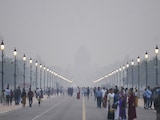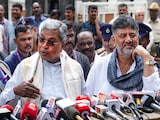When a group of armed mercenaries seized a Russian regional capital and began marching toward Moscow in late June, verified information was hard to come by. Vladimir Putin's propaganda machine largely ignored the Wagner Group's mutiny at first, while government censors quickly blocked access to Google News through the country's largest internet providers and hid results for certain searches, such as those for the rebels' leader, Yevgeny Prigozhin, on the Russian search engine Yandex.
An exception was the crowdsourced encyclopedia Wikipedia, which posted a detailed article in Russian about the uprising that incorporated new reporting as it happened. The article, "The Mutiny of the Wagner Group," cited sources ranging from news media outlets that the Kremlin labels "foreign agents" for not toeing the party line to US newspapers and Russian state media, and is thousands of words long. It drew more than 270,000 page views on its first day.
Wikipedia is one of Russia's most popular websites, with about 95 million visitors a month, including about 10,000 active editors who maintain its nearly 2 million Russian-language articles. Its enduring presence in Putin's Russia is a bit surprising, given the Kremlin's aggressive attempts to control what is said about the government and its policies, a tendency that's only accelerated since the invasion of Ukraine. Wartime censorship has brought new laws against supposed "disinformation" and bans of news websites, civic organizations and even environmental groups.
While Wikipedia has remained in operation in Russia so far, there are signs that things are shifting against it. From March 2022 through this June, the government repeatedly sanctioned the site, levying fines totaling almost 23 billion rubles ($255 million), according to the Wikimedia Foundation Inc., the San Francisco-based organization that hosts the servers that operate Russian Wikipedia and is thus legally responsible for what is published.
Jacob Rogers, a lawyer who represents the foundation in Russian litigation, says it wouldn't agree to any of the government's requests to remove content and is challenging the fines in court. "We think that Wikipedia is full of pretty good information overall, that it's got good reliable sources representing a variety of different perspectives on these issues, that the users are doing a good job of making it be written in a neutral point of view," he says.
Putin has long made his displeasure with Wikipedia clear, vowing in 2019 to support an alternative that "will be reliable information, presented in a good, modern way." This April, Valery Fadeyev, the chairman of the Human Rights Council, a Kremlin-backed mouthpiece on civil society issues, said Wikipedia's coverage of Ukraine justified replacing it with a more cooperative local alternative. The same month Maksut Shadayev, Russia's minister of digital development, told journalists that the government had no plans to do so, but hardly offered the encyclopedia a vote of confidence. "We are not blocking Wikipedia yet," he said, according to the Interfax news agency. "There are no such plans for now."
In what was widely interpreted as an ominous sign, a near-copy of Russian Wikipedia appeared online on June 27. (Wikipedia's license allows users to "fork" the service, copying a version and starting an alternate version from that snapshot, under certain conditions.) Articles on topics that Russia has banned-like the one about alleged human-rights abuses in Bucha at the start of the war-had been removed. An article on the Wagner Group appeared, but it didn't mention the mutiny. Gone, too, was an article about a profane chant against Putin that's popular among Ukrainian soccer fans.
The new site is called Ruwiki, a common shorthand for Russian Wikipedia. It's the work of Vladimir Medeyko, the long-serving leader of Russian Wikipedia editors. His colleagues were shocked that he'd quit a project he'd worked on since 2003-and even more taken aback that he said his reason for leaving was to create a Kremlin-compliant rival.
Medeyko says he isn't working for the government. He says he sought to reform Wikipedia from within for more than a decade before the split, which was made possible after he found like-minded investors that he declines to identify. The new site features less free-for-all Wikipedian crowdsourcing. In its initial form, Ruwiki can't be edited by outsiders at all, though Medeyko's plan is to allow such volunteer contributions on most articles, while also having panels of experts vet the material. "Experts are not interested in participating in Wikipedia because they don't want to argue with people without a proper education who have exactly the same rights," he says.
Ruwiki will follow Russian laws while maintaining its neutrality, according to Medeyko. "There will be particularly strict requirements for the quality of sources and indisputable phrasing regarding current events," he says. Its article about the invasion of Ukraine never refers to it as an invasion, simply noting that "Military operations in Ukraine began on February 24, 2022. This was preceded by a crisis in relations between Russia and Ukraine."
While Medeyko says he opposes blocking Wikipedia, some hard-liners within the government see his project as a way to do just that. Alexander Khinshtein, the chair of the digital committee in the lower house of the Russian parliament, wrote on his Telegram account the day after Ruwiki went live: "As I've said many times, Wikipedia can only be completely blocked when a domestic analogue has been created. Now, that's no longer an issue."
Russian Wikipedians fear a similar outcome. "If they want to block us, they can," says Stanislav Kozlovskiy, who's replaced Medeyko. He says the Putin regime has targeted fewer than 200 articles-a tiny fraction. He also says it's hard to satisfy government censors entirely. "We try to maintain neutrality, and any sensitive issues are reviewed by moderators," he says. "We limit the use of Russian or Ukrainian sources for current events, but that doesn't stop the criticism. In Russia, officials think our articles are written by Ukrainians, while some Ukrainians seem to believe that they're written in the Kremlin."
Russia isn't the only country where Wikipedia has found itself in conflict with local officials. Turkey shut it down for more than two years after it refused to remove material describing the nation as a state sponsor of terror because of its support of militant groups in Syria. The Turkish government said the accusations were part of a smear campaign that threatened the public order and national security. A Turkish court restored Wikipedia in 2020, saying the ban violated the country's constitutional guarantee of freedom of expression.
Pakistan shut down Wikipedia for a weekend in February for posting what it considered to be sacrilegious content. In May, India told the foundation it would block the English version of Wikipedia locally if it didn't follow an Indian law that says all maps must match its national border outline, including disputed areas such as Kashmir. The community is debating whether to comply.
One of Wikipedia's best defenses against such actions is its popularity. When China, the only major country to ban Wikipedia outright, began blocking the site, it softened the blow by first cultivating a government-friendly alternative: the collaborative encyclopedia Baidu Baike. The new site allowed registered users to create their own content but was also careful to follow China's censorship rules, giving users a service with a similar feel that posed less of a threat to the government.
Medeyko also plans to replicate some of Wikipedia's crowdsourced formula. He's said that Ruwiki will look for editors who don't find Wikipedia inviting, either because of political controversies or other reasons.
Creating the site has made him a heretic in the eyes of his former community. When Medeyko announced his plans, Wikipedia's other editors immediately deleted his account-his handle was DrBug-which he had used to make more than 25,000 edits and create hundreds of articles. But if Ruwiki does supplant Wikipedia in Russia, editors who worked on the original site will have to decide how they feel about it, and how to engage with it. Nikolay Bulykin, a frequent contributor to Russian Wikipedia who uploads photographs of historic churches and castles taken by drone, shrugs his shoulders at the thought of the thousands of hours he's devoted to creating content for Wikipedia ending up on a site that could replace it.
"I'm not going to forbid anyone from using my work," he says from Kazakhstan, where he relocated after the Russian army began drafting men to fight in Ukraine. "That's not what free knowledge is all about."
(Except for the headline, this story has not been edited by NDTV staff and is published from a syndicated feed.)















